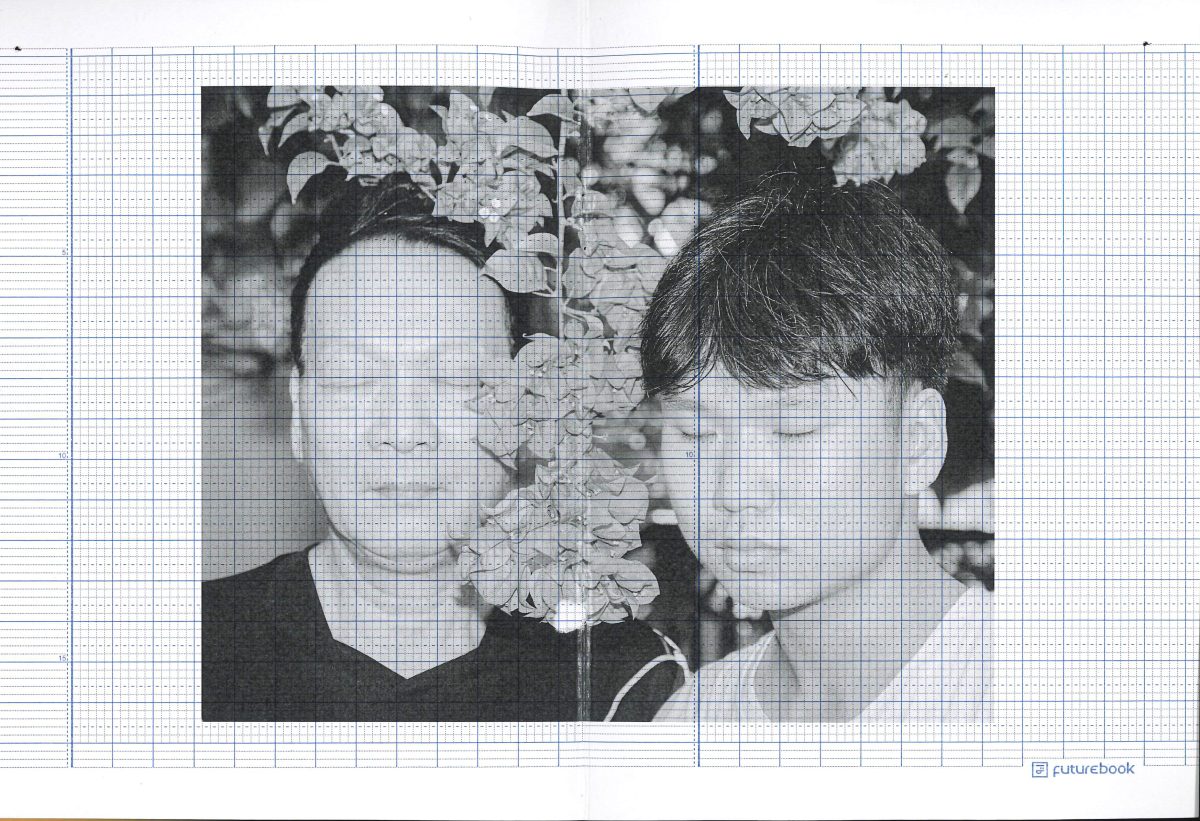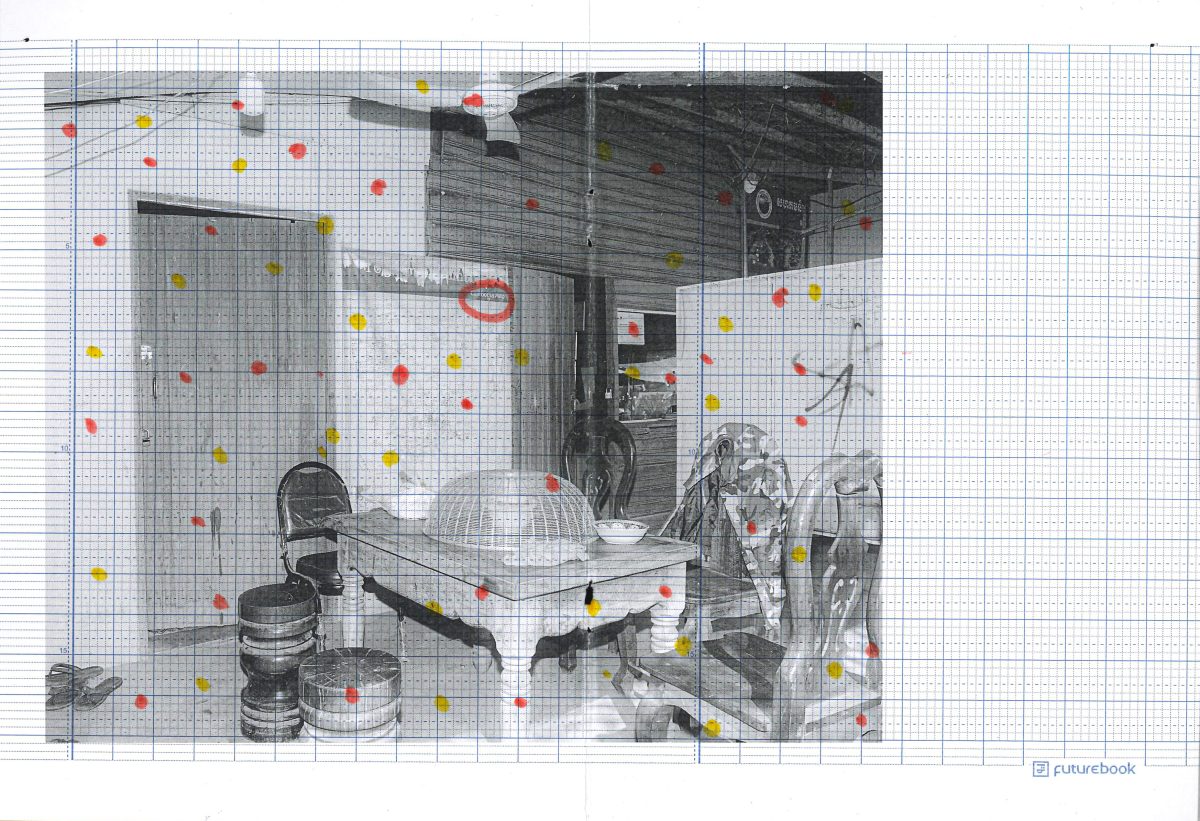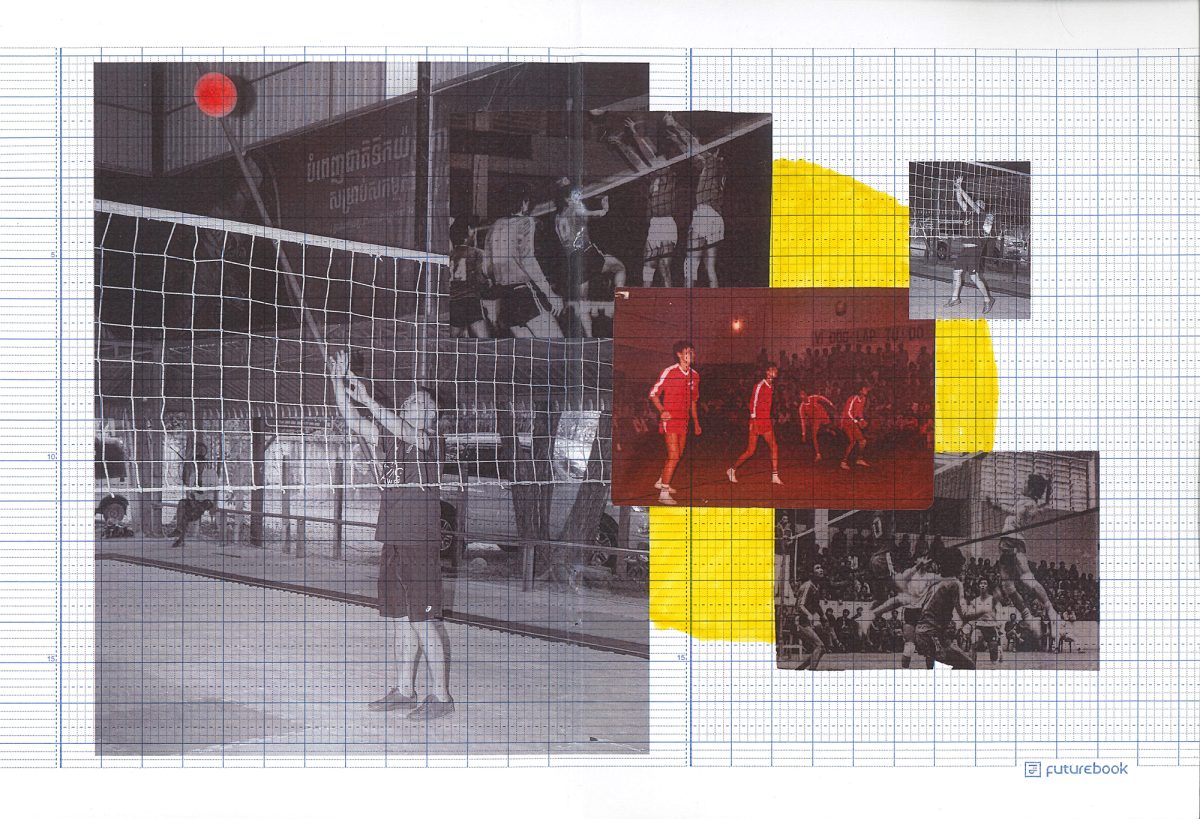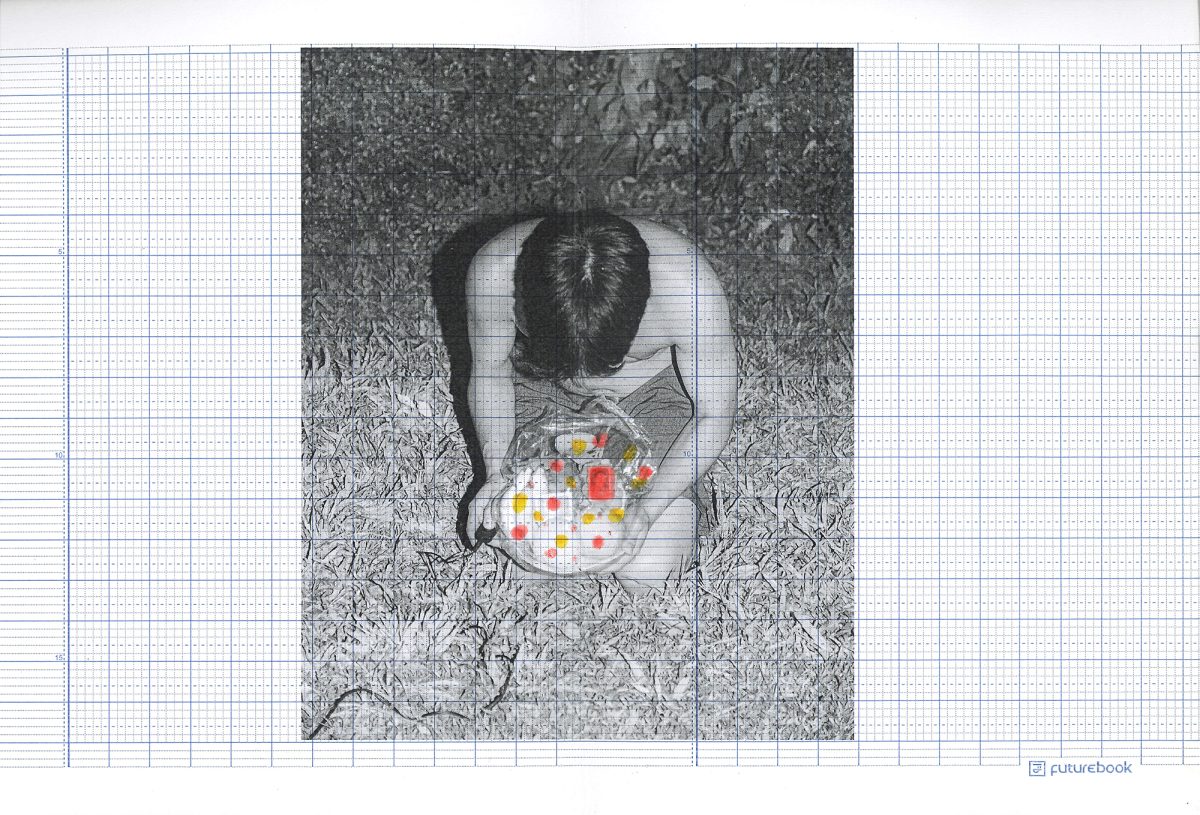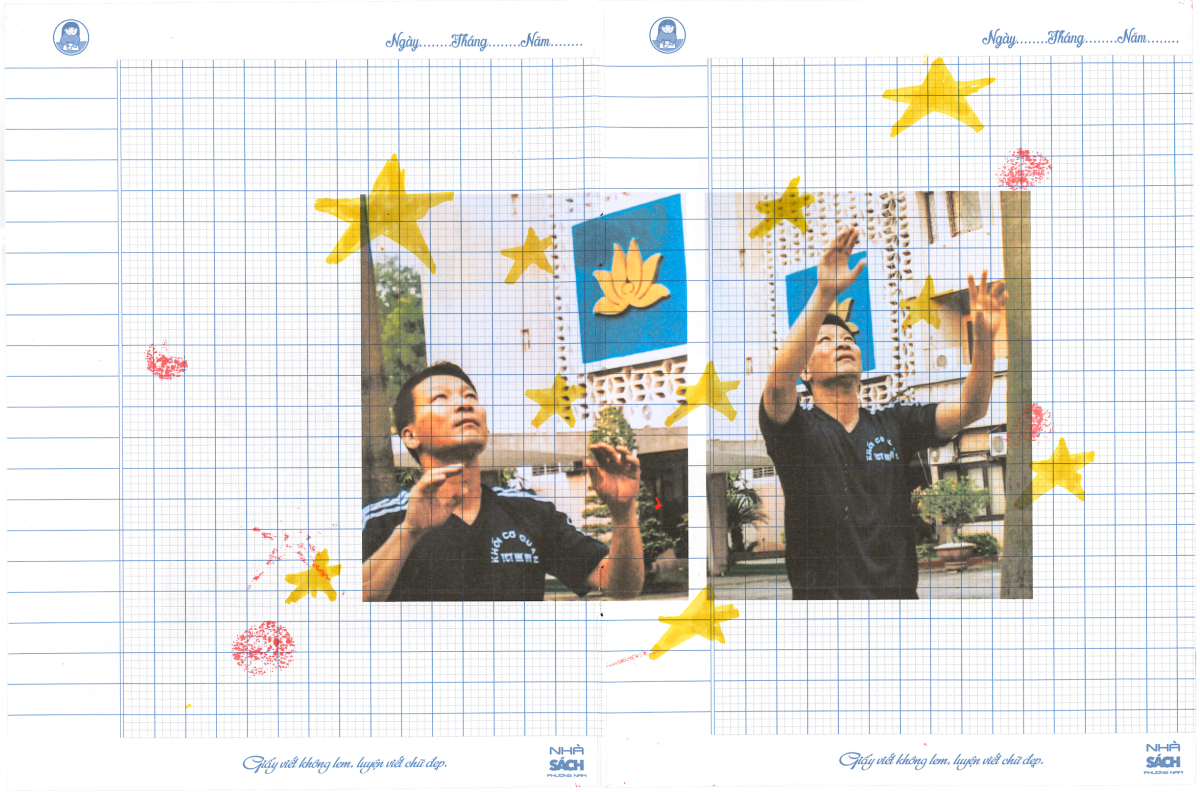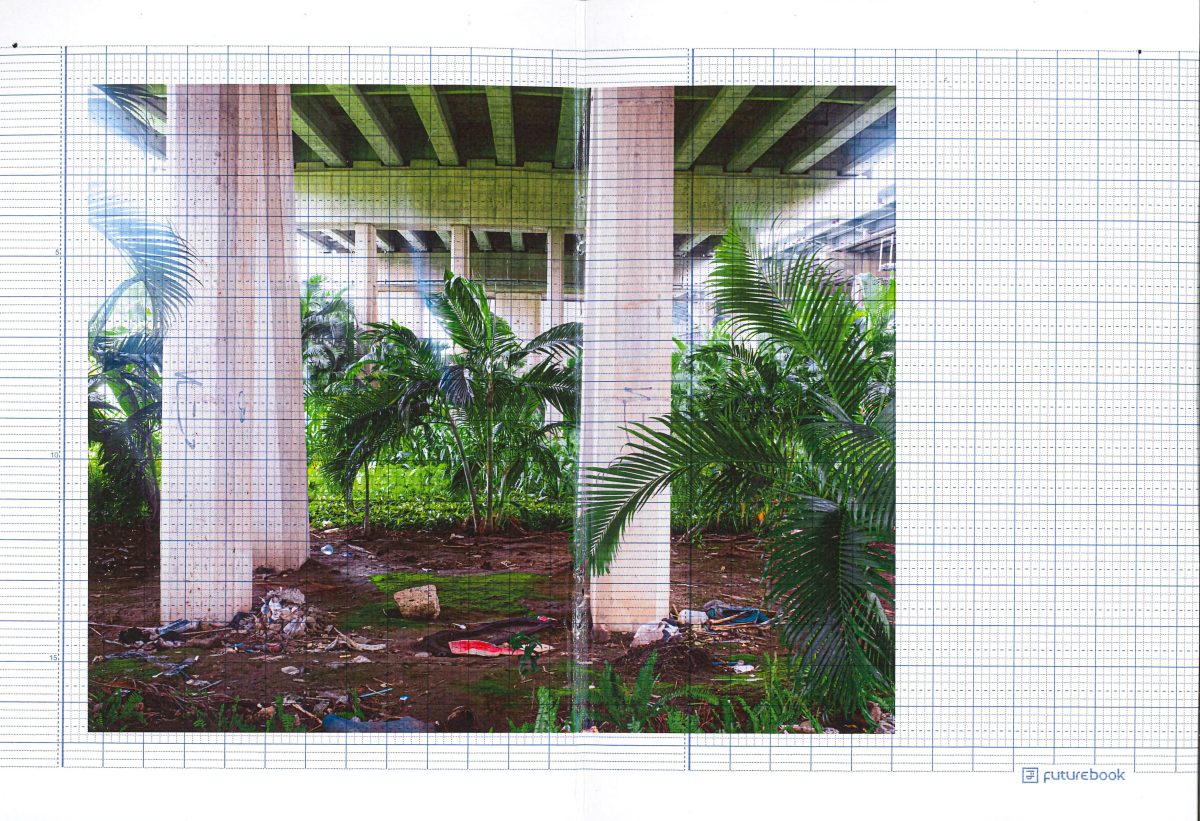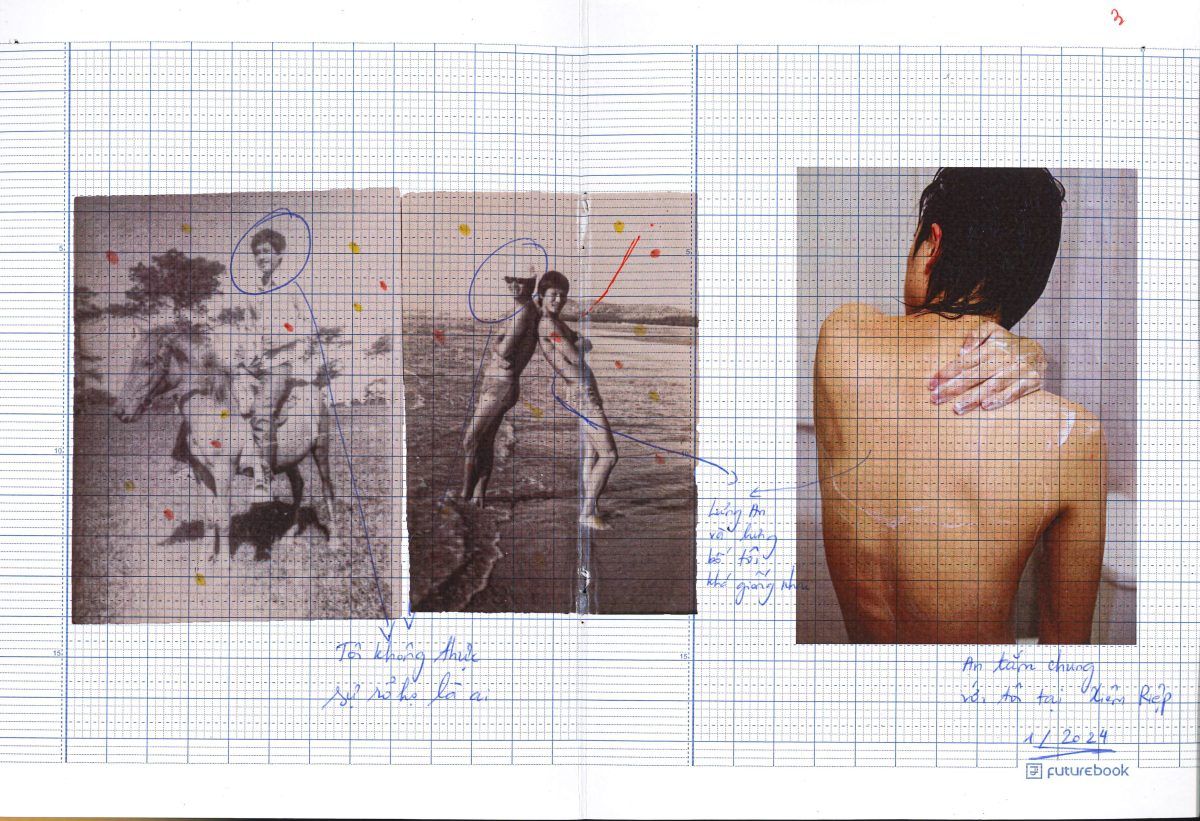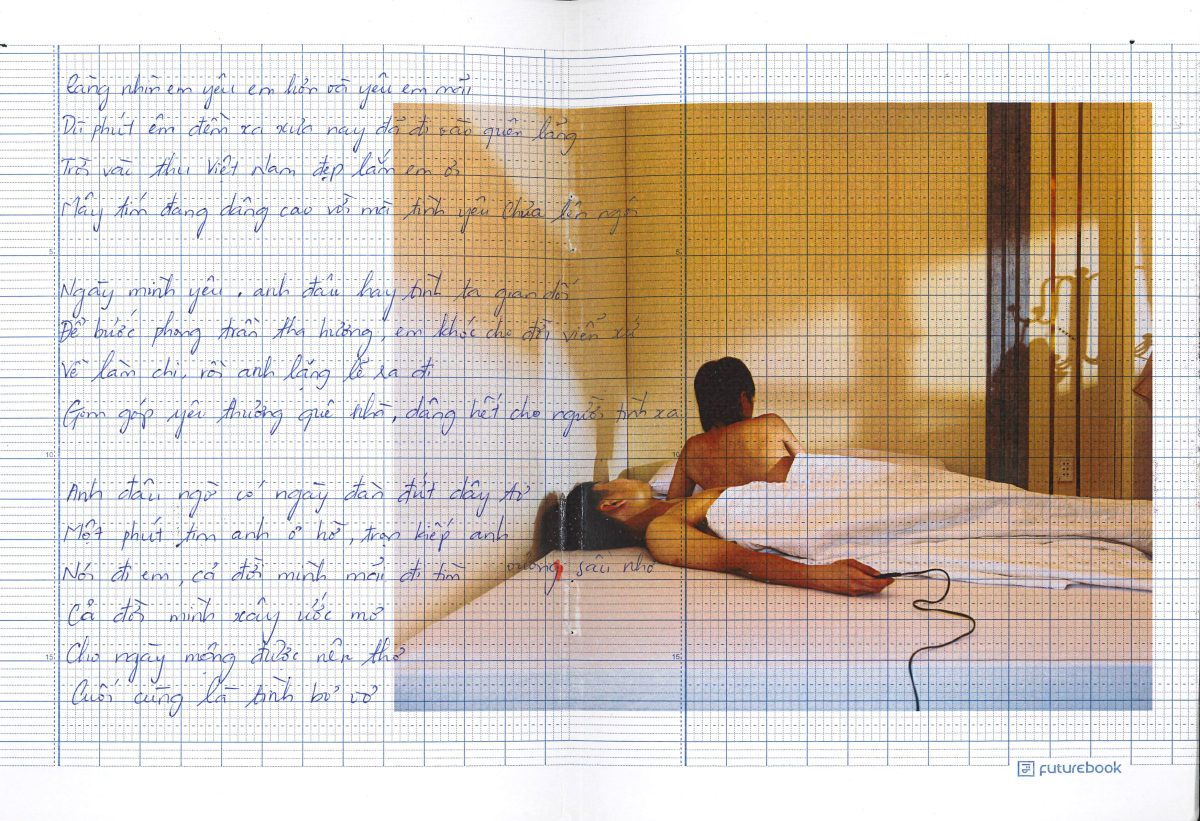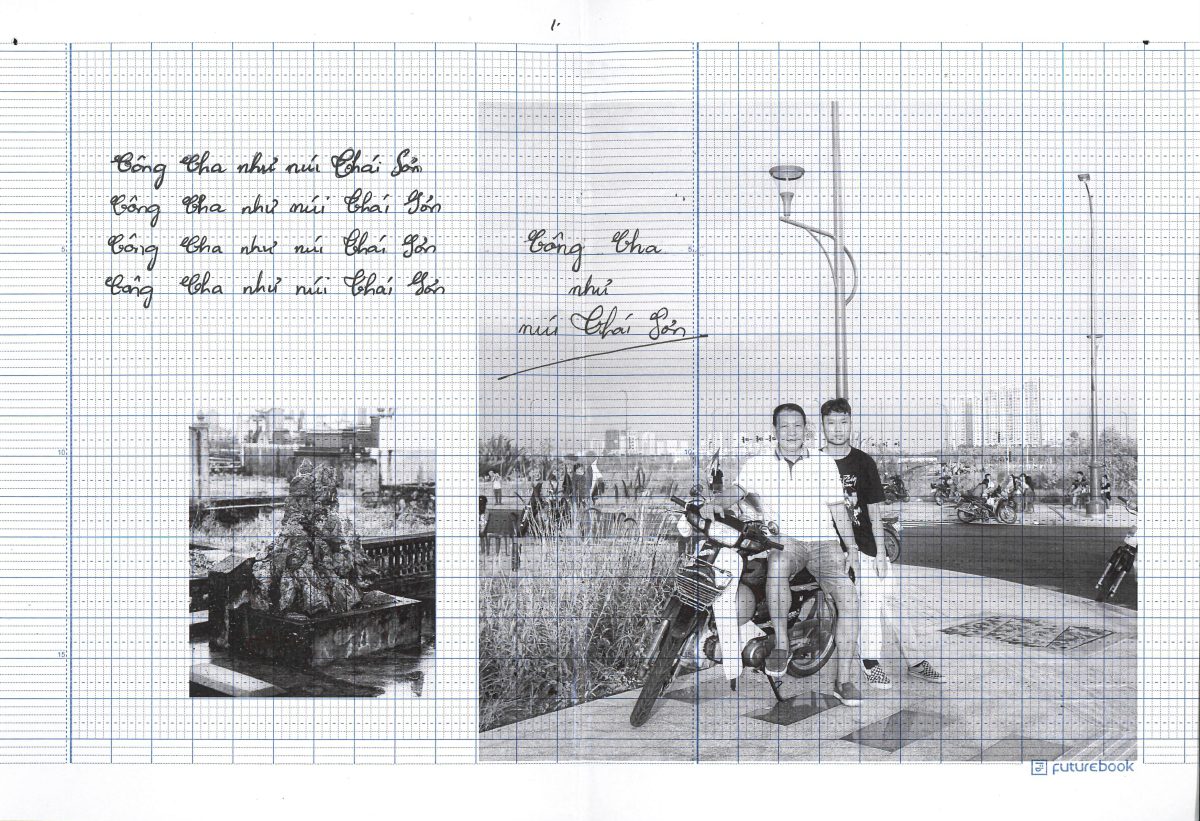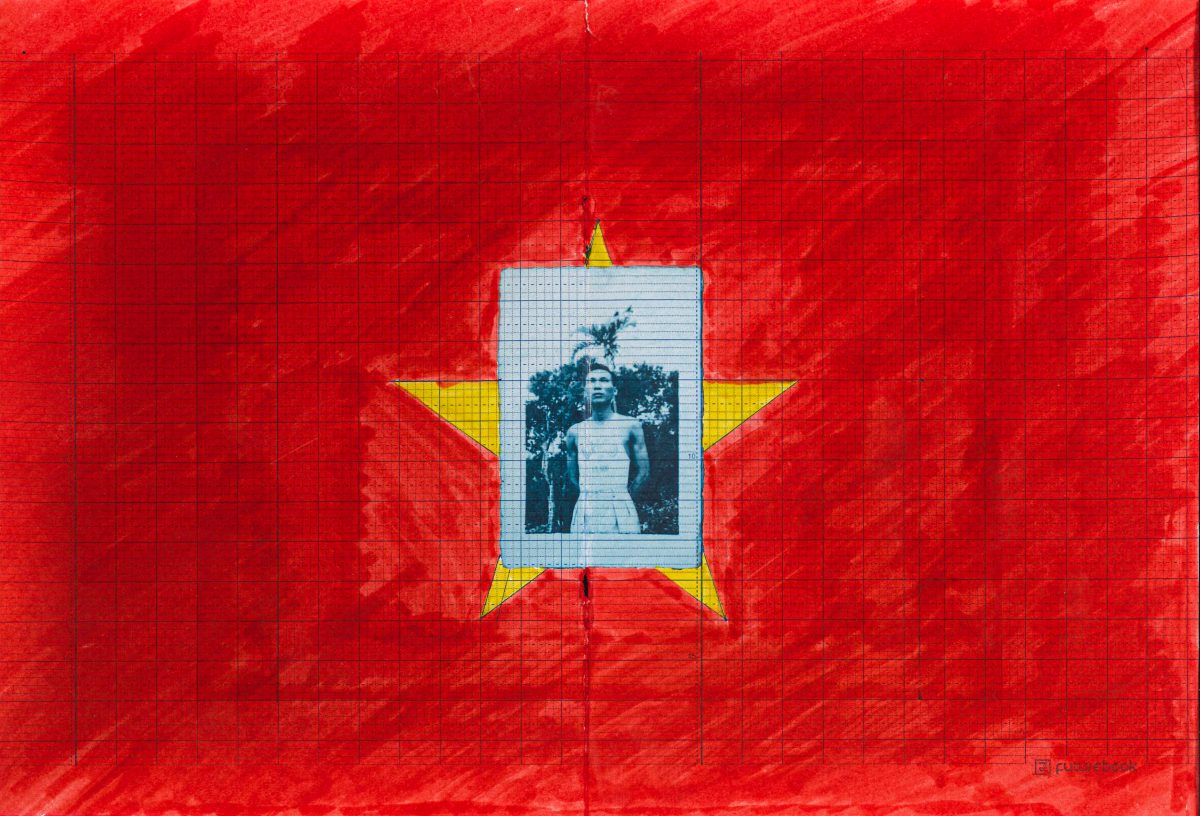From issue: #27 Emerging Talent
Lê Nguyên Phương, Vở ô ly
In 1985, Phương’s father travelled to Siem Reap as a professional volleyball player, part of an athletic training camp for the Vietnamese military. A year later, he returned not as an athlete but as a soldier. The battle he took part in was one of many during a little-known border conflict that followed the fall of the Khmer Rouge. The Vietnamese government never officially acknowledged this phase of the war and has refused to recognise its veterans. As a result, Phương’s father has remained outside both national history and public memory.
In 2024, Phương returned to Siem Reap with his father. They visited former battlegrounds, shared a motel room, played volleyball and photographed one another. The project that emerged, titled Vở ô ly, draws on these new photographs alongside family archives, printed onto pages from Vietnamese school exercise books collected in Saigon. These grid-lined pages, once used by Phương during his own school years, become a structure for revisiting what he was taught, and for challenging the official narratives of war and masculinity he inherited. The printing process introduces misalignments that echo the visual logic of military grid systems used during the American War in Vietnam, offering a quiet counterpoint to state and colonial records.
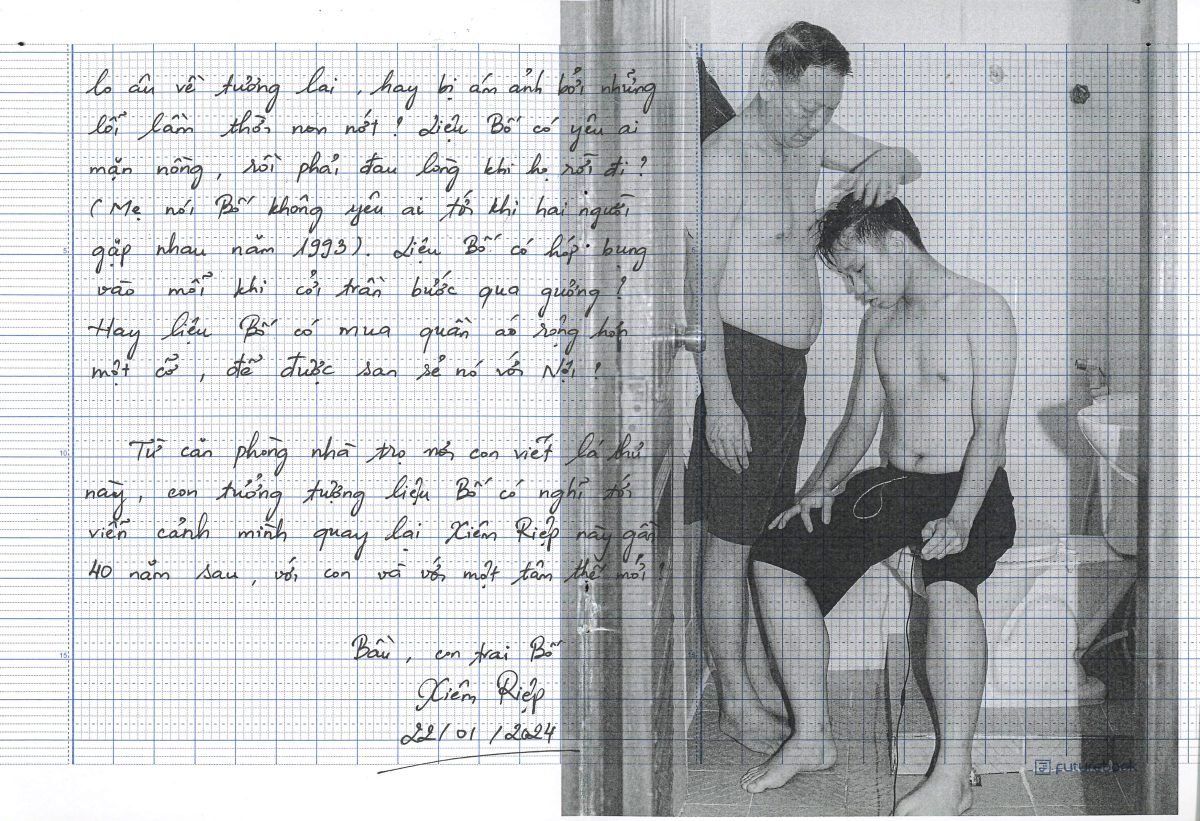
Phương’s work explores collective memory and the ruptures within it, particularly where personal histories diverge from dominant national stories. His practice considers how memory is shaped, silenced and reactivated within families. Born in Hanoi in 2002, Phương is an artist and researcher working across the Asia-Pacific. His work has been shown at Objectifs in Singapore, the Angkor Photo Festival in Cambodia and the Museum of Australian Photography. He recently began a PhD at RMIT University in Melbourne.
